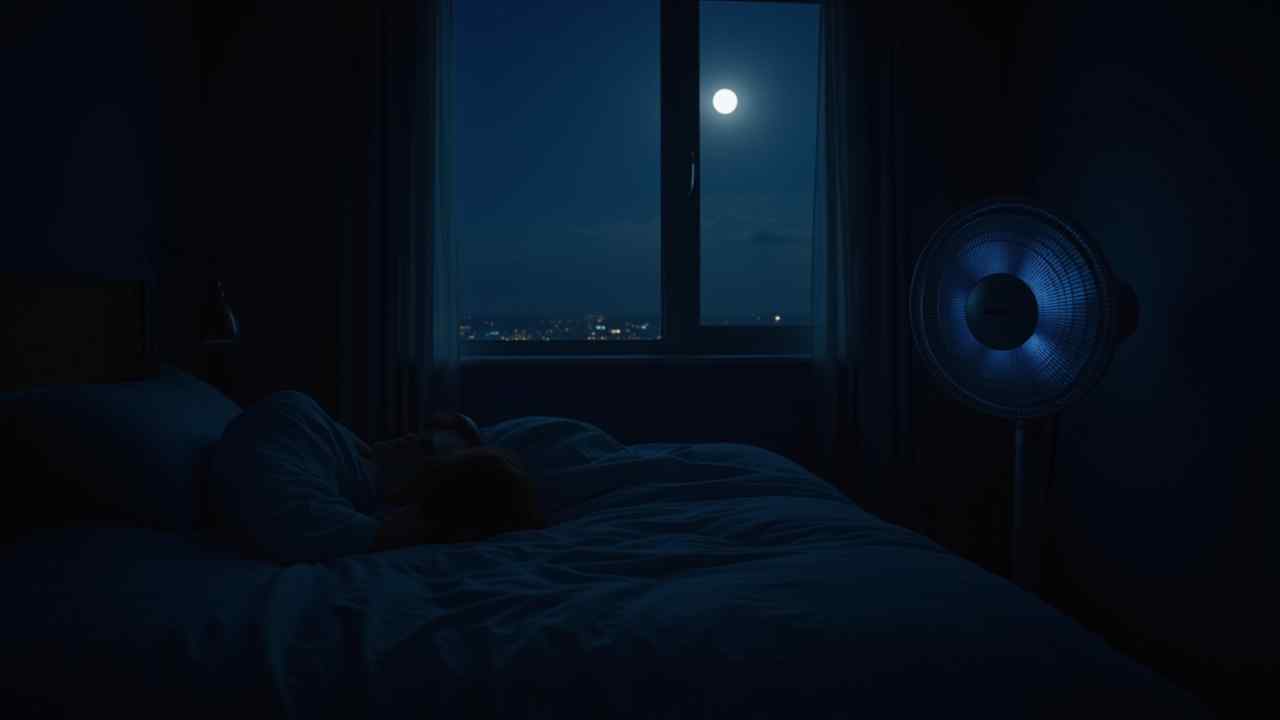
🌬️ Is Fan Noise Good for Sleep? A Guide to This Classic Sleep Aid
🌬️ Is Fan Noise Good for Sleep? (A Guide to This Popular Sleep Aid) 🌬️
For millions of people, the steady, humming sound of a fan is an essential part of their bedtime routine. It is a classic and beloved sleep aid. Many find it impossible to sleep in a quiet room without it. But is there a real reason for this?
So, is fan noise for sleep actually a good thing? The answer is yes. For many people, it can be an incredibly effective tool for improving sleep quality. It works by creating a consistent and predictable sound environment. This helps your brain to relax.
This guide will explore why fan noise is so effective. We will cover its benefits and its potential drawbacks. Let's dive into the science of this simple but powerful sleep solution. ✅
🤔 Why is Fan Noise So Effective for Sleep?
The main reason that fan noise for sleep works so well is a principle called sound masking. A fan produces a type of broadband noise. This is often referred to as white noise or pink noise. This sound contains a wide range of frequencies.
This steady hum creates a "wall of sound." This wall makes it much harder to hear other, more disruptive noises. Sudden sounds like a barking dog, a car horn, or a snoring partner are less likely to startle you awake. The fan noise raises the baseline level of sound in your room. This makes other noises less jarring.
This consistent and predictable soundscape tells your brain that there are no threats. It allows your mind to relax and drift off to sleep more easily. It is a simple but powerful effect.
👍 What Are the Main Benefits of Sleeping with a Fan?
The benefits of using fan noise for sleep go beyond just the sound. It is a multi-purpose tool for creating the perfect sleep environment. Here are the top benefits.
- Sound Masking: This is the number one benefit. It blocks out unpredictable noises that can disrupt your sleep.
- Cooling and Air Circulation: The physical movement of air is also very helpful. A cooler body temperature is strongly linked to deeper, more restorative sleep. A fan helps you to stay cool and comfortable.
- Psychological Association: Over time, your brain can form a strong association. It learns that the sound of the fan means it is time to sleep. This can become a powerful cue to help you wind down at night.
👎 Are There Any Drawbacks to Using a Fan?
While sleeping with a fan is great for many, there are a few potential downsides to consider. The good news is that these can usually be managed quite easily.
The constant airflow can be drying. It can dry out your skin, eyes, and nasal passages. If you notice this, using a humidifier in your room can help to add moisture back into the air.
Fans can also circulate dust and allergens. It is important to keep your room clean. You should also regularly wipe the blades of your fan. This will prevent dust from being blown around your bedroom.
⭐ What Are Some Modern Alternatives to a Physical Fan?
What if you love the sound of a fan but not the feeling of the air? You are in luck. There are many modern alternatives that provide the same sound without the breeze.
White Noise Machines are dedicated devices. They can produce a variety of sounds, including different types of fan noises. Smartphone apps and websites are another great choice. You can find countless high-quality recordings of fan sounds. These are perfect for travel. A smart speaker can also play fan sounds on command.
Whether it is from a real fan or a digital source, a steady hum can be a simple key to a better night's sleep. 🌙